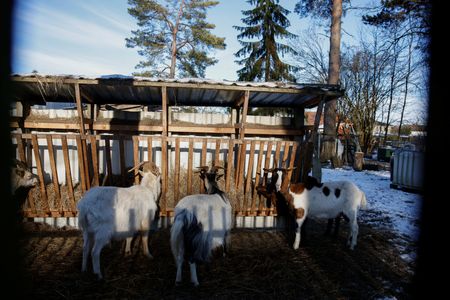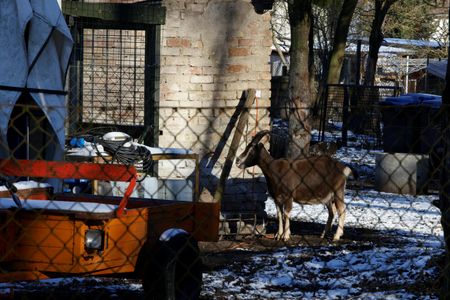LONDON (Reuters) -Britain on Tuesday banned imports of hams as well as many other meat and dairy products from Germany to try to prevent foot-and-mouth disease spreading to Britain after a case was confirmed on the outskirts of Berlin last week.
The government said that while there were no cases of the livestock disease in Britain, the ban would help stop it spreading and protect British farmers and their livelihoods.
German authorities on Friday confirmed the country’s first outbreak of foot-and-mouth disease in nearly 40 years in a herd of water buffalo on the outskirts of Berlin.
Foot-and-mouth is a severe, highly contagious viral disease of livestock that affects cattle, swine, sheep, goats and other cloven-hoofed animals.
While the disease poses no risk to human health or food safety, a particularly severe outbreak in 2001 in Britain culminated in the slaughter of more than 6 million animals, wrecking incomes for many farmers.
The outbreak has meant Germany can no longer be classified as free of foot-and-mouth disease, and had been expected to trigger a wave of trade restrictions.
Germany’s agriculture ministry said on Monday that exports of milk and dairy products, meat and meat products, hides and skins and blood products were “currently hardly possible”, adding that it “assumed third countries would immediately impose bans on such goods from Germany”.
Germany is the third largest exporter of pig meat to the UK with an 18% market share and the second largest exporter of dairy products with a 12% market share, according to Britain’s Agriculture and Horticulture Development Board.
“It means that ham, gammon and bacon as well as products like salami from Germany will not be allowed into the UK. As such we are expecting some disruption to supply,” Mandy Nevel, AHDB’s Head of Animal Health and Welfare, said.
Between January and October 2024, the UK imported 117,340 metric tons of pig meat worth 448 million pounds ($545 million) from Germany, the AHDB said.
Dairy imports totalled 130,000 tons during the same period and were valued at 283 million pounds, while beef and sheep meat imports were much smaller at 6,796 tons (23.2 million pounds) and 85 tons (963,000 pounds) respectively.
($1 = 0.8220 pounds)
(Reporting by Nigel Hunt and Sachin Ravikumar. Writing by Sarah Young. Editing by William James and Mark Potter)












